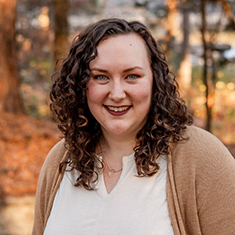The U.S. Agency for International Development (USAID), through the Honduras Local Governance Activity (HLG), is supporting the prevention and early detection of COVID-19 in 41 municipalities, 8 municipal associations, 18 nongovernment-managed health centers, 6 hospitals, 4 shelters for victims of gender-based violence, and 7 youth groups in this Central American country of 9.6 million people.
Through the delivery of sanitation supplies and medical diagnostic tools, the Activity is working to improve the safety of more than 4,000 individuals who are actively responding to the COVID-19 pandemic in western Honduras. By strengthening local government and frontline health service provider capacity to prevent further spread of COVID-19 and detect potential cases at the local level, the Activity aims to indirectly benefit up to 1.1 million people.
“We did not have these kinds of supplies in the municipality. They will be very useful for the people who are working in health centers, checkpoints, and as volunteers,” said René Pérez, Mayor of San Andrés, Lempira. “On behalf of the people of San Andrés, thank you very much.”
Western Honduras, where HLG works, suffers from weak public health systems and high levels of poverty, presenting complex challenges in addressing COVID-19. As of May 26, there are 4,182 confirmed cases registered nationwide, and 182 people have died.
In April and May, approximately $126,000 worth of supplies—including more than 1,000 gallons each of bleach, hand sanitizer, detergent, and disinfectant—were delivered across western Honduras. Six regional hospitals also received thermometers, pulse oximeters, and vital sign monitors to improve the care they provide.

The Juan Manuel Gálvez Hospital in Gracias, Lempira, receives equipment and sanitation supplies. Photo courtesy USAID/Honduras Local Governance Activity.
Additionally, the Activity staff equipped rural health providers in western Honduras with digital thermometers and pulse oximeters to help detect early signs of COVID-19, refer patients to the specialized centers, and reduce contagion.
“This equipment is extremely important to provide quality care to COVID19 patients,” said Gracia Martínez, Director of the Juan Manuel Gálvez Hospital. “Sanitation supplies will allow us to disinfect isolation areas, which is vital for the prevention of more infections.”
“Our technicians are exposed due to the support we provide to the population and to the municipalities—these supplies help us to mitigate the risk of contagion in the provision of these important services,” added Ely Morales, manager of a municipal association.

Hogar de Niñas San Antonio, one of the four shelters for victims of gender-based violence, received supplies to prevent COVID-19. Photo courtesy USAID/Honduras Local Governance Activity.
The Activity has provided technical assistance to increase transparency and improve the administrative management capacity of municipalities, municipal associations, and public service providers—including decentralized health centers—since 2017.
In addition to delivering supplies, the Activity is assisting local governments and civil society organizations to bolster their efforts to implement the government-led Solidaria strategy to provide food to vulnerable families, and is also coordinating with decentralized health providers to support their work to prevent further spread of COVID-19.
The Activity will continue collaborating with actors at the local level throughout the COVID-19 emergency. Next, the Activity will provide critical diagnostic and sanitation supplies to regions in need and to shelters for senior citizens and children.
Gabriela Villeda is Communications Manager for the Honduras Local Governance Activity.




